By Michael D. Hull
World War II made a disparate trio of allies —British Prime Minister Winston Churchill, Soviet Marshal Joseph Stalin, and American President Franklin D. Roosevelt—military as well as political leaders in turn.
They were guilty of monumental strategic mistakes in 1941, showed considerable resilience in 1942, and won great victories in 1943. But the “Big Three” had not yet all met together to plan the future course of the war and consider the shape of the postwar world. So, when Churchill and Roosevelt met for discussions at the palatial Chateau Frontenac in Quebec on August 17-24, 1943, they realized the need to include Stalin in their next round of talks.
On August 18, during their first Quebec conference code named Quadrant, the British and American leaders telegraphed the Soviet dictator, “We fully understand strong reasons which lead you to remain on battlefronts where your presence has been so fruitful of victory. Nevertheless, we wish to emphasize once more importance of a meeting between all 3 of us.” They suggested a conference in Fairbanks, Alaska, which was less than 600 miles from eastern Soviet territory.
Replying to Roosevelt alone, Stalin agreed that such a meeting “would positively be expedient,” and conceded, “I do not have any objections to the presence of Mr. Churchill at this meeting.” But he suggested as a site Archangel in northern Russia or Astrakhan in the south. The wily, ruthless Stalin was seemingly reluctant to travel far and abandon his people then battling the German armies on the Eastern Front, but in fact he seldom left the Kremlin and paid only one brief visit to a war front, in August 1943.
Churchill, who had flown to Moscow in August 1942 and who made numerous perilous missions throughout the war, became frustrated by the Soviet leader’s backpedaling. Telegraphing his war cabinet from Quebec, the prime minister complained about the “bearishness of Soviet Russia” and the fact that Stalin had “studiously ignored our offer to make a long and hazardous journey in order to bring about a tripartite meeting.”
By mid-September 1943, the idea of Tehran, a city in mountainous north-central Iran, had been raised as a site for the talks. It was outside Russia, but close enough for Stalin to get back quickly to Moscow if needed. Churchill was ready to go anywhere, but Roosevelt balked. Citing restrictions placed on him by the Constitution, he feared that the difficulty of reaching Tehran by air would seriously hamper his vital legislative business with Congress.
Averell Harriman, Roosevelt’s able ambassador to the Soviet Union, pressured Stalin to no avail. The southeastern Iraq port of Basra was suggested as a compromise. Roosevelt would not have to cross the mountains, and secure links could be set up between there and the Soviet Union. But Stalin insisted that the telegraph line between Tehran and Moscow, guarded by Red Army troops, was essential to his conduct of the Eastern Front campaigns.
Eventually, the Americans came around and Tehran was agreed upon as the venue for the conference. Code named Eureka, it was scheduled for November 28 to December 6, 1943. Churchill and Roosevelt, meanwhile, agreed on a preliminary meeting in Cairo, code named Sextant.
FDR and Churchill’s Dueling Opinions About Stalin
Traveling respectively in the aging 31,988-ton battlecruiser HMS Renown and the new 45,000-ton battleship USS Iowa, the British and American chiefs and their military staffs converged on the Egyptian capital. Joined by Chinese President Chiang Kai-shek and his stylish wife, Churchill and FDR held two lengthy meetings on November 23-26 at Cairo’s spacious Mena House Hotel, near the Pyramids and the River Nile. It was agreed that the British would conduct an amphibious offensive in the Bay of Bengal to coincide with a Chinese intervention in northern Burma and that Japan should be stripped of all Far Eastern territory it had seized since 1914.
General Alan Brooke, the shrewd British Chief of the Imperial General Staff, noted that the Chinese leader looked like “a cross between a pine marten and a ferret” and had “no grasp of war in its larger aspects,” while Madame Chiang Kai-shek had “a queer character in which sex and politics seemed to predominate.” The likelihood of Turkey joining the war on the Allies’ side was discussed in Cairo, while FDR informed Churchill that he was considering naming General Dwight D. Eisenhower to command the planned invasion of northern France. But the British and the Americans left Cairo early on Sunday, November 28, without having decided how to deal with Stalin.
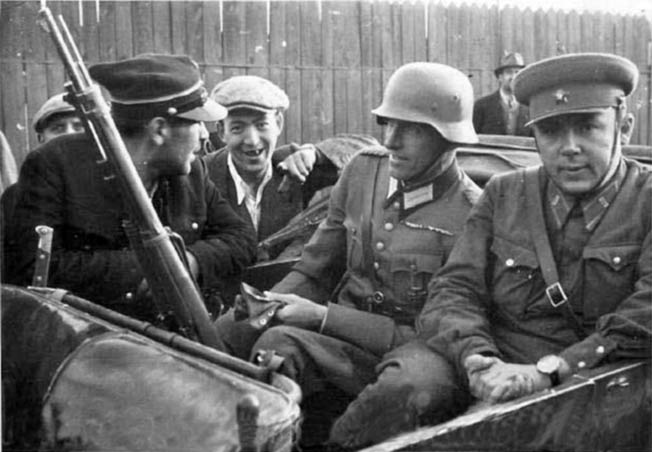
The jaunty, optimistic Roosevelt, however, was sure that he had a better chance of gaining the confidence of “Uncle Joe” than Churchill. In March 1942, he had written to the prime minister, “I know you will not mind my being brutally frank when I tell you that I think I can handle Stalin personally better than either your Foreign Office or my State Department. Stalin hates the guts of all your top people. He thinks he likes me better, and I hope he will continue to do so.”
Somewhat naive about foreign relations, FDR told William Bullitt, his former ambassador to Moscow, “I have just a hunch that Stalin doesn’t want anything but security for his country, and I think that if I give him everything I possibly can and ask nothing from him in return, noblesse oblige, he won’t try to annex anything and will work for a world of democracy and peace.”
Flying to Tehran early on Sunday, November 28, 1943, in a converted four-engine Avro York transport named Ascalon, Churchill—then feverish and not in his best health—confided some misgivings to his doctor, Lord Charles Moran. The Americans wanted a quick invasion of France, he said, and might throw away “shining, gleaming opportunities in the Mediterranean.” The Allied campaign in Italy was flagging and allowing the Germans to draw their breath. As for Stalin, one of Churchill’s aides had warned, “To make friends with Stalin would be equivalent to making friends with a python.” The prime minister foresaw a difficult time in Tehran.
The arrival there for the most significant and far-reaching top-level Allied talks of the war was not encouraging. Churchill’s daughter, Sarah, a section officer in the Women’s Auxiliary Air Force, described the slow ride through narrow, crowded streets to the British legation as “spine-chilling.” She said, “Anyone could have shot my father at point-blank range or just dropped a nice little grenade into our laps.” She found the ramshackle legation, guarded by 350 men of the East Kent (“Buffs”) Regiment, “cold and cheerless.” Olive Christopher, one of Churchill’s administrative aides, observed, “Tehran itself we all thought was the most filthy place. All the drains are open and run through the streets…. It took a week to get the smell of Tehran out of our clothes.”
President Roosevelt landed in Tehran on the afternoon of Saturday, November 27, after a 1,300-mile flight from Cairo. He had planned to take up quarters in the American legation, but Marshal Stalin invited him to stay in the Soviet legation, across the road from the British. Shortly after the president had settled in, Stalin walked over and they chatted informally for an hour. The two heads of state were amiable, and this did not bode well for Churchill.
The Big Three
Products of the late 19th century, the three leaders meeting in Tehran were physically resilient and, though amateur diplomats, each unique in the political forum of his own country in the first half of the 20th century. Roosevelt and Stalin were, respectively, seven and five years younger than Churchill.
Cherubic, pugnacious, and the most scholarly of the three, the British prime minister was a parliamentary maverick, staunch imperialist, prolific writer, and the only one with combat experience and a happy marriage. He ate and drank copiously, was seldom without a Havana cigar, and never exercised. His bulldog courage and resounding oratory had inspired his people when they stood alone against the Axis powers in 1939-1941. His trademark V for victory sign became a universal symbol of freedom.
The handsome, idealistic Roosevelt was a well-to-do upstate New York patrician who stubbornly overcame crippling poliomyelitis and whose bold leadership helped his country mobilize against the Great Depression and then gird for war. He and Churchill enjoyed a unique relationship, but he was suspicious of the British and their sprawling empire. Roosevelt watched his diet, collected postage stamps, and swam regularly. He could be both charming and devious, and, like Churchill, was intensely interested in naval affairs. His trademarks were a Navy cape and a long cigarette holder.
Short, paunchy, and mustached, Stalin was a coarse Georgian peasant and former seminary student who used the apparatus of the Communist Party to reach the pinnacle of political power in the Soviet Union. He ruthlessly liquidated all in the party, government, and armed forces who might oppose his dictatorship. He had black teeth and yellow eyes, and, like Churchill, avoided exercise. Stalin drank wine, toyed with a pipe supplied by the London firm of Alfred Dunhill (which provided Churchill with cigars), and, like FDR, was a chain smoker.
Private Talks Between Roosevelt and Stalin
At their private meeting on the afternoon of November 28, Roosevelt told Stalin, “I am glad to see you. I have tried for a long time to bring this about.” The Soviet leader admitted that he was partly responsible for the delay, being “very occupied with military matters.” Accompanied by their interpreters, the two chiefs discussed the Eastern Front and the global situation and agreed that France should be punished for collaborating with Germany. Both overlooked Stalin’s eager alliance with Nazi dictator Adolf Hitler in 1939-1941. Roosevelt advised Stalin not to discuss the question of India with Churchill and made it clear that he had ideas about the conduct of the war and its aftermath that differed from those of the British leader.
Sensing that Roosevelt wanted to appear independent of Churchill’s influence, Stalin proceeded to encourage it. He started by proposing that FDR should chair all sessions. On leaving the meeting, Roosevelt said he appreciated the opportunity to meet the Soviet leader in “informal and different circumstances.”
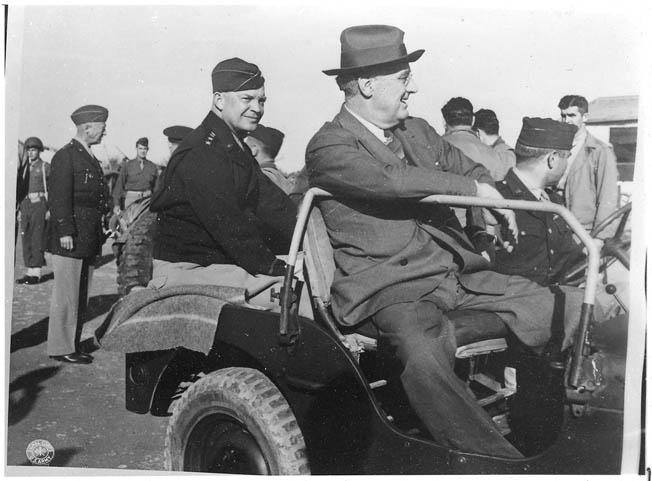
The Conference Begins
At 4 pm on November 28, the three Allied leaders and their aides sat in the conference room of the Soviet Embassy for their first plenary session. The meeting represented “the greatest concentration of power that the world had ever seen,” Churchill reported. For him, the Tehran talks were the last time he was able to confer with FDR and Stalin on equal terms. In more than four years of war, British manpower and resources had been severely strained.
Churchill pointed out that the three men held the future of mankind in their hands, and Stalin agreed, “History has given us a great opportunity. Now let us get down to business.” General Alan Brooke said of the Sunday afternoon session, “This was the first occasion during the war when Stalin, Roosevelt, and Winston sat around a table to discuss the war we were waging together. I found it quite enthralling looking at their faces and trying to estimate what lay behind.” He decided that Stalin, unlike many other World War II leaders, possessed “a military brain of the highest caliber.” Alan Brooke said later, “Never once in any of his statements did he make any strategic error, nor did he ever fail to appreciate all the implications of a situation with a quick and unerring eye.”
Taking the chair, President Roosevelt announced that the three chiefs would talk “with complete frankness on all sides, with nothing that was said to be made public.” He was confident of the success of the talks, that the three nations would cooperate in prosecuting the war, and that they would “also remain in close touch for generations to come.”
Decisions on the European and Pacific Theaters
Roosevelt reported on operations in the Pacific Theater and stressed the American effort to keep China in the war, which did not interest Churchill and was opposed by Stalin. The Soviet dictator had excluded Chiang Kai-shek from the Tehran conference.
Turning to the European Theater, Roosevelt explained that a shortage of sea transport, particularly landing craft, had prevented the setting of a date for Operation Overlord. At Quebec, he and Churchill had tentatively agreed on May 1, 1944, as the date for the invasion. Stalin and General George C. Marshall, chairman of the U.S. Joint Chiefs of Staff, had pressed for a second front as early as 1942. Stalin wanted pressure taken off his armies on the Eastern Front, while Marshall, though a brilliant organizer, was a flawed strategist. The necessary manpower, shipping, and other resources were simply not available in 1942 or even in 1943.
Churchill, who reported experiencing nightmares of Allied bodies piled high on French beaches in a premature invasion as shown in the ill-fated Dieppe raid, advocated an assault against the Balkans, the “soft underbelly of Europe.” For this, he was accused by Stalin and others of stalling and lacking conviction in Overlord.
Harry Hopkins, the frail but tireless international security surrogate for both FDR and Churchill, vigorously opposed operations in the Balkans. The prime minister wanted Overlord launched only under the most favorable circumstances. He had served in the Western Front trenches during World War I when a generation of British manhood was sacrificed, and he knew that his country could not endure another such bloodbath.
During the first plenary session in Tehran, Stalin promised that once Germany was conquered he would help Britain and America defeat Japan. He dismissed Italy and the Balkans as bases for launching assaults against Germany and agreed, “Northern France is still the best.” He thus threw his support behind the U.S. Chiefs of Staff, much to their delight.
Churchill stated that the North African and Italian campaigns were clearly secondary, but the best that could be managed in 1943. With the fall of Rome, he said, Allied troops would be available for use in a planned invasion of southern France, code named Operation Anvil. Interested only in the invasion of northern France, Stalin maintained that the dispersal of Allied forces in the Mediterranean area would not aid Overlord. He wanted the Normandy assault launched, and soon. Churchill returned to the question of drawing Turkey into the war, but FDR and Stalin offered no encouragement, and the session ended.
Establishing the Postwar Order
On the evening of November 28, Roosevelt hosted Churchill and Stalin at dinner in his quarters. The Soviet dictator argued that France deserved no special treatment, “had no right to retain her empire,” and should not play a significant role in the affairs of the postwar world. Roosevelt concurred in part, with only Churchill defending the nation and voicing his hope for a “flourishing and lively France.” Stalin then said that Germany, once defeated, must be kept weak so that she could never again plunge the world into war. Churchill suggested disarmament measures, but the Soviet leader dismissed them as inadequate and said he had no faith in the reformation of the German people.
Then arose the question of Poland, the invasion of which had precipitated the war. Stalin said he thought the Poles should have the Oder River for their western frontier, while Churchill proposed the Curzon Line as the postwar Soviet-Polish border, with Poland receiving territorial compensation from Germany. Named after Lord George Curzon, the British foreign secretary in 1920, the line was advocated at the 1919 Paris Peace Conference as the eastern boundary of Poland. When Roosevelt suggested international control of the approaches to the Baltic Sea, the Soviet leader declared curtly, “The Baltic states had, by an expression of the will of the people, voted to join the Soviet Union, and this question was not therefore one for discussion.”
After FDR went to bed, Churchill and Stalin again discussed postwar Germany. The latter suggested restraints on German industry, while the British leader said he believed that the German people could be re-educated within a generation. Stalin was pessimistic, but history would prove Churchill right. The prime minister stressed the British intention to reestablish a strong and independent Poland, and Stalin insisted that he did not want Poland but would be satisfied with some German territory. On that note, they parted for the evening.
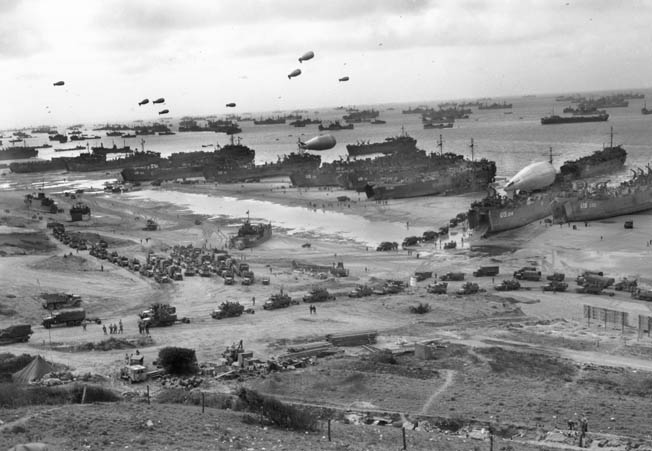
“The Four Policemen”
Churchill asked for a private meeting with Roosevelt on the morning of November 29, but it was refused because the president did not want to arouse Soviet suspicions. Instead, Roosevelt continued to meet privately with Stalin. The prime minister had become the odd man out at Tehran, but he stood firm while his patience and customary good humor were under siege.
Roosevelt was determined to establish a personal bond with Stalin, who had initially appeared “correct, stiff, solemn, not smiling, nothing to get hold of,” so he made a point of teasing Churchill during the conference. “Winston is cranky this morning,” Roosevelt whispered to Stalin at one point. “He got up on the wrong side of the bed.” When FDR needled the prime minister about his cigars, habits, and British attitudes, Stalin smiled. Roosevelt continued until Stalin was laughing and Churchill scowling. The prime minister had been forewarned, but he failed to see any humor in Roosevelt’s remarks. The president persisted until it ceased to be amusing, but he claimed later that teasing Churchill made his relations with Stalin more personal.
On the afternoon of November 29, in their second private meeting, Roosevelt presented to Stalin his idea of an executive committee—the United Nations Organization—to maintain world order after the war. It would comprise the United States, the Soviet Union, Great Britain and the Commonwealth, China, two European countries, a South American nation, and countries in the Middle East and Far East. “The Four Policemen”—America, Britain, Russia, and China—would deal with any threat to peace. Stalin opposed the inclusion of China.
The Second Session in Tehran: Discussing Operation Overlord
The conference’s second plenary session was convened later on the afternoon of November 29. The British and American military advisers were present, and Marshal Stalin was accompanied by his hard-bitten, stammering foreign minister, Vyacheslav Molotov, and incompetent Marshal Klimentii Voroshilov. Alan Brooke and Marshall reported on a morning meeting of the military staffs and briefed the Big Three on preparations for the invasion of Normandy. Stalin asked who would command Operation Overlord, but Roosevelt replied that no one had been chosen. “Nothing should be done to distract attention from that operation,” urged the Soviet leader, adding that the date should be set and also an invasion of southern France mounted.
Churchill called for a strong Allied offensive in central Italy and increased aid to the Balkans, both aimed at pinning down German forces and thus aiding Overlord. He assured Stalin that Britain had no territorial ambitions in the Balkans. Stalin continually interrupted Churchill and asked if the British really believed in Overlord or were just trying to placate the Soviets. Growing impatient with the sneering dictator, the prime minister replied that such a venture had been his country’s intention since before the French collapse in 1940. If conditions were right, said Churchill, “it was the duty of the British government to hurl every scrap of strength across the Channel.”
At 3:30 pm on November 29, the British delegation went to the Soviet Embassy to watch Churchill present the Sword of Stalingrad to Stalin. Forged in England, the ornate silver, gold, and crystal ceremonial sword represented a tribute to “the steel-hearted people of Stalingrad” and the climactic victory there, one of the turning points of 1942. After a speech, the prime minister gave the sword to Stalin in the name of King George VI. Stalin kissed it and handed it over to Marshal Voroshilov, who promptly dropped it out of its scabbard. General Alan Brooke reported that it was finally given to the commander of the Soviet honor guard and “marched off securely.”
Stalin’s ‘Joke’
That evening, Stalin hosted Churchill and FDR at dinner. The Soviet leader taunted the prime minister over his dogged argument during the afternoon talks; stout opposition was a new experience for the dictator. He inferred several times that Churchill “nursed a secret affection for Germany and desired to see a soft peace.” Stalin, who had liquidated millions of his own people in the 1930s, advocated that 50,000 German military officers be shot, and the humane Churchill was outraged. He protested “the cold-blooded execution of soldiers who had fought for their country.” While agreeing that war criminals would have to stand trial, he added, “I would rather be taken out into the garden here and now and be shot myself than sully my own and my country’s honor by such infamy.”
Churchill’s anger was not abated when Roosevelt tried to ease the tension by joking that only 49,000 officers needed to be executed. Although Foreign Secretary Anthony Eden hinted that Stalin and FDR were not being serious, Churchill left the dinner table and did not return until the Soviet leader clapped him on the shoulders and assured him that it had been a joke.
The talks resumed. Stalin admitted that his Red Army had fought poorly against the gallant, outnumbered Finns in the winter of 1939-1940, and that it had been woefully unready when the Germans invaded Russia on June 22, 1941. The dictator was to blame for this because he had purged 10,000 senior officers of the Red Army in 1938. Stalin said he favored increases in British strength in the Gibraltar area and suggested that America and Britain install more friendly governments in Spain and Portugal. When Churchill inquired about Soviet territorial ambitions, the marshal replied, “There is no need to speak at the present time about any Soviet desires, but when the time comes, we will speak.”
Agreeing on a Date For Overlord
On the following day, Tuesday, November 30, the prime minister—disturbed by Roosevelt’s refusal to confer with him privately—sought out Stalin to explain his stance on the delayed second front. He wanted to dispose of any idea that “Churchill and the British staffs mean to stop Overlord if they can, because they want to invade the Balkans instead.” He outlined British preparations for the massive cross-Channel assault and offensives in Italy and insisted that Mediterranean operations would draw German strength away from the north. Stressing the shortage of ships and landing craft, Churchill said he wanted some U.S. naval units detached from the Pacific Theater. But, he noted, “the Americans are very touchy about the Pacific.”
Stalin told the prime minister that the morale of the Red Army was greatly dependent on Overlord and that once he knew the date, heavy blows would be inflicted on the Germans. At a lunch meeting that day, Roosevelt briefed his Allied colleagues on military recommendations. The Italian offensive would be continued to the northern Pisa-Rimini line, he said, and Overlord and the invasion of southern France would jump off in May 1944. Stalin was pleased. Churchill ended the session by voicing hope that the nations governing the postwar world would have satisfied their territorial aims in order to ensure peace.
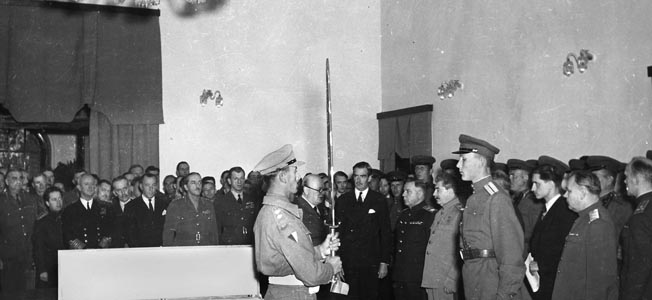
At the afternoon plenary session on November 30, General Alan Brooke confirmed that the British and American staffs had agreed to launch Overlord and Anvil in May 1944. Churchill promised to keep the Soviets informed of Anglo-American plans, but Stalin did not make a similar pledge. He did, however, vow to start a simultaneous offensive from the east to pin down German forces and prevent their transfer to France. Roosevelt endorsed Churchill’s call for coordinating Allied plans, but Stalin was again silent. The president said he would name the Overlord commander within a few days after consulting Churchill. Eisenhower was appointed the following month.
Churchill’s 69th Birthday
Prime Minister Churchill turned 69 on November 30, so Roosevelt and Stalin were invited to a birthday dinner party that evening in the British legation, which had first been thoroughly searched by Soviet agents. After three days of grueling and sometimes acrimonious discussion, it was a cheery interlude of good humor made memorable to Churchill. Elegant table crystal and silver gleamed, and candles were lighted on a birthday cake as the prime minister sat flanked by FDR and Stalin. Glasses were raised in many toasts.
Stalin toasted Churchill as his “great friend,” the latter toasted “Stalin the great,” and Roosevelt graciously toasted Sarah Churchill. When her father said during one of his toasts that “England is getting pinker,” Stalin replied, “It is a sign of good health.” This triggered a roar of laughter. Stalin toasted FDR for his commitment to democracy and paid tribute to American industry, while Churchill said he admired the president’s bold actions in 1933, which “prevented a revolution in the United States.” Just before the party wound up at 2 am, Roosevelt proposed the loyal toast saying, “We have proved here at Tehran that the varying ideals of our nations can come together in a harmonious whole, moving unitedly for the common good of ourselves and of the world…. We can see in the sky, for the first time, that traditional symbol of hope, the rainbow.”
Dividing Up Europe
The three leaders gathered for a lunch conference on December 1. Churchill again pressed the enlistment of Turkey in the Allied war effort, but FDR and Hopkins tried to dampen his enthusiasm while Stalin said little. That afternoon, Roosevelt and Stalin huddled privately for the last time, and the Big Three and their aides sat for their final session in the evening. The fates of Poland and postwar Germany were again discussed.
Roosevelt proposed that Germany be broken up into five self-governing states, Churchill suggested that Prussia be separated from the rest of Germany, and Stalin advocated a thorough dismembering of the country. He feared a rebuilt Germany and wanted an international group formed to make sure that she remained neutralized. The perceptive Churchill asked Stalin if he “contemplated a Europe composed of little states, disjointed, separated, and weak,” and the marshal answered, “Not Europe, but Germany.” Roosevelt seemed to approve. Stalin wanted Germany to cease to exist as a political entity, with the Soviet Union filling the vacuum and dominating central Europe.
Churchill returned to the question of Poland, seeking a frontier formula he could present to the exiled Polish government in London. Poland would have the Curzon Line and the Oder River as frontiers, together with part of East Prussia, and Stalin agreed, providing that the Soviet Union gained northern East Prussia. Then he would accept the Curzon Line as the Soviet-Polish border.
The three leaders agreed on a resounding declaration that left many issues vague but heralded the founding of the United Nations as a postwar watchdog. They declared themselves committed to “the elimination of tyranny and slavery, oppression and intolerance,” though history would show that Stalin’s definition of such evils differed from those of Churchill and Roosevelt. In their declaration, the Big Three parted as “friends in fact, in spirit, and in purpose.”
The Most Important Conference of the War
The Tehran Conference was the most important of the Allies’ top-level wartime meetings, including Yalta and Potsdam. By agreeing to the Overlord plan, with Soviet forces advancing from the east, the Big Three shaped future Europe. Soviet armies would control Eastern Europe, and the other Allies the West. The optimistic Roosevelt, who left Tehran believing that he had won Stalin over, did not see the potential dangers. While FDR and Churchill never wavered in their determination to defeat the Axis powers, only the prime minister was aware of the clouds sure to move in on the postwar horizon. The Tehran talks paved the way for the 1945 Allied victory, but other decisions made there would plague Europe for many years.
Taking off from Tehran early on Thursday, December 2, 1943, Roosevelt, Churchill, and their staffs flew over the Persian Mountains and headed southwest to Cairo for another conference. Wearing his Blitz-era siren suit and a Royal Air Force great coat, the prime minister lunched on quail and white wine aboard his Avro York, sat in the copilot’s seat, and was in good spirits.
During their second meeting in the Egyptian capital, Churchill persuaded FDR to take a drive out to see the Sphinx. On the way, Roosevelt mentioned that he could not spare General Marshall to command Operation Overlord, and asked Churchill if General Eisenhower would be acceptable. Churchill said it was the president’s decision but that the British would gladly support Ike. Alan Brooke had also coveted the assignment, but Churchill similarly felt that he could not be released from his Whitehall power base. The two leaders gazed silently at the Sphinx for a few minutes. “She told us nothing,” Churchill reported later, “and maintained her inscrutable smile.”
The president and prime minister parted on December 7. After a fruitless 15-hour discussion with Turkish President Ismet Inonu in Cairo, Churchill went on to convalesce in Marrakech. He was suffering throat pains, congestion, and a temperature of 101. Roosevelt, meanwhile, flew to Tunis, where Eisenhower met him. After they had climbed into a staff car, FDR turned to the general and said, “Well, Ike, you are going to command Overlord.”
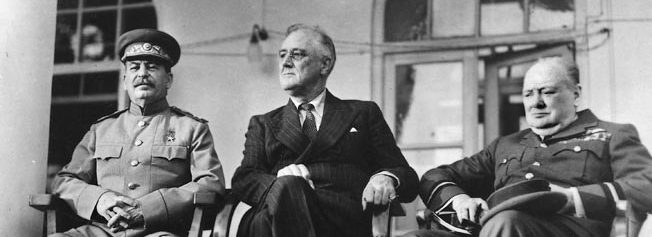

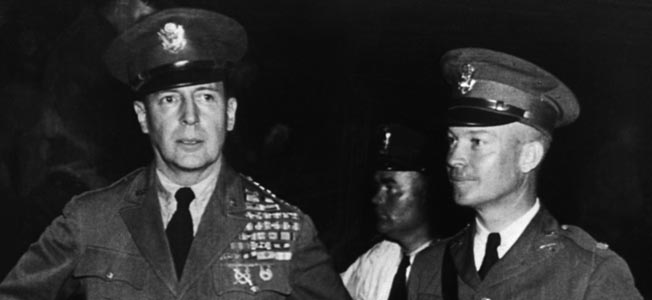
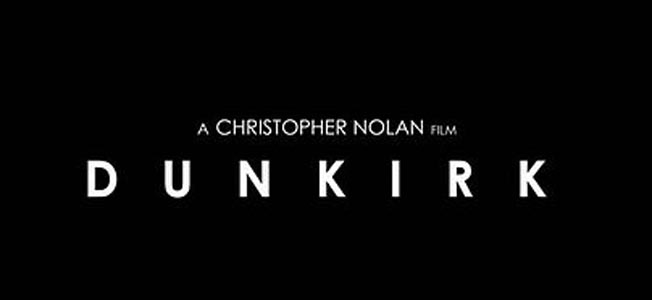

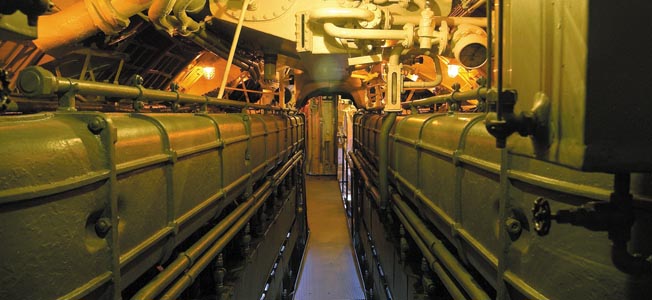
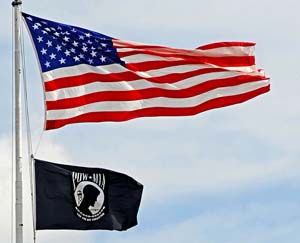
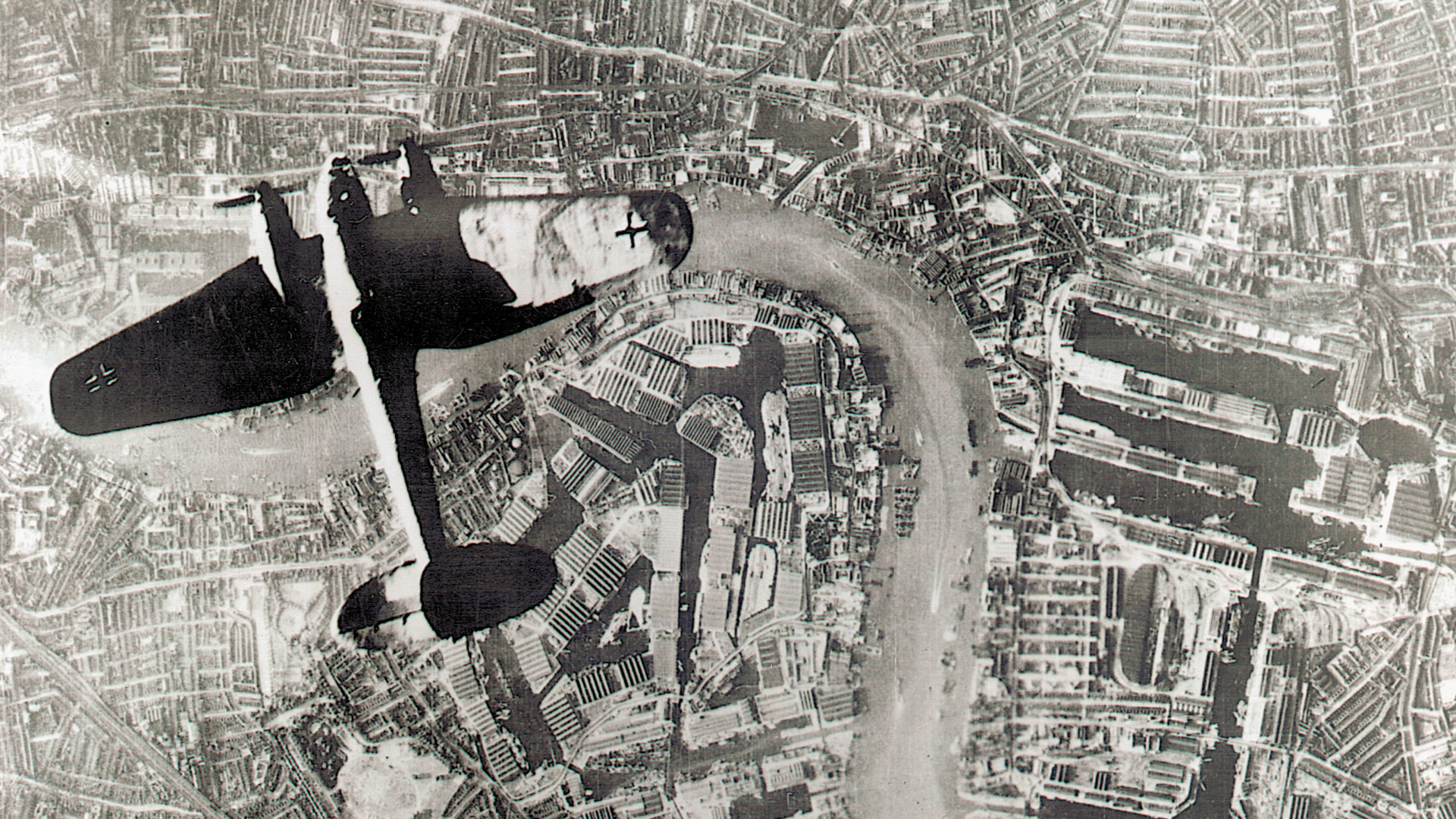
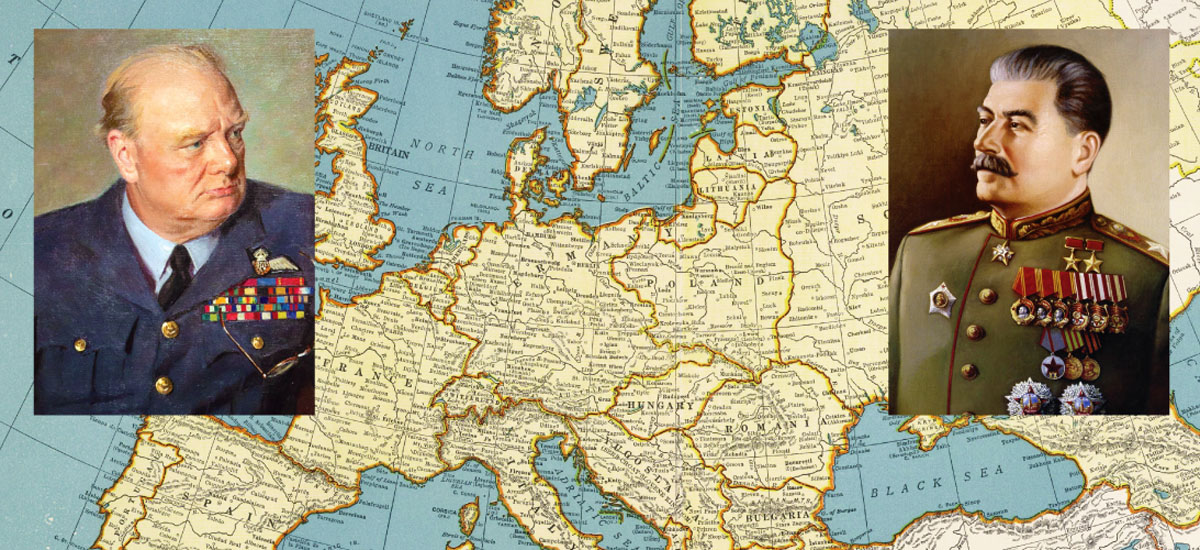
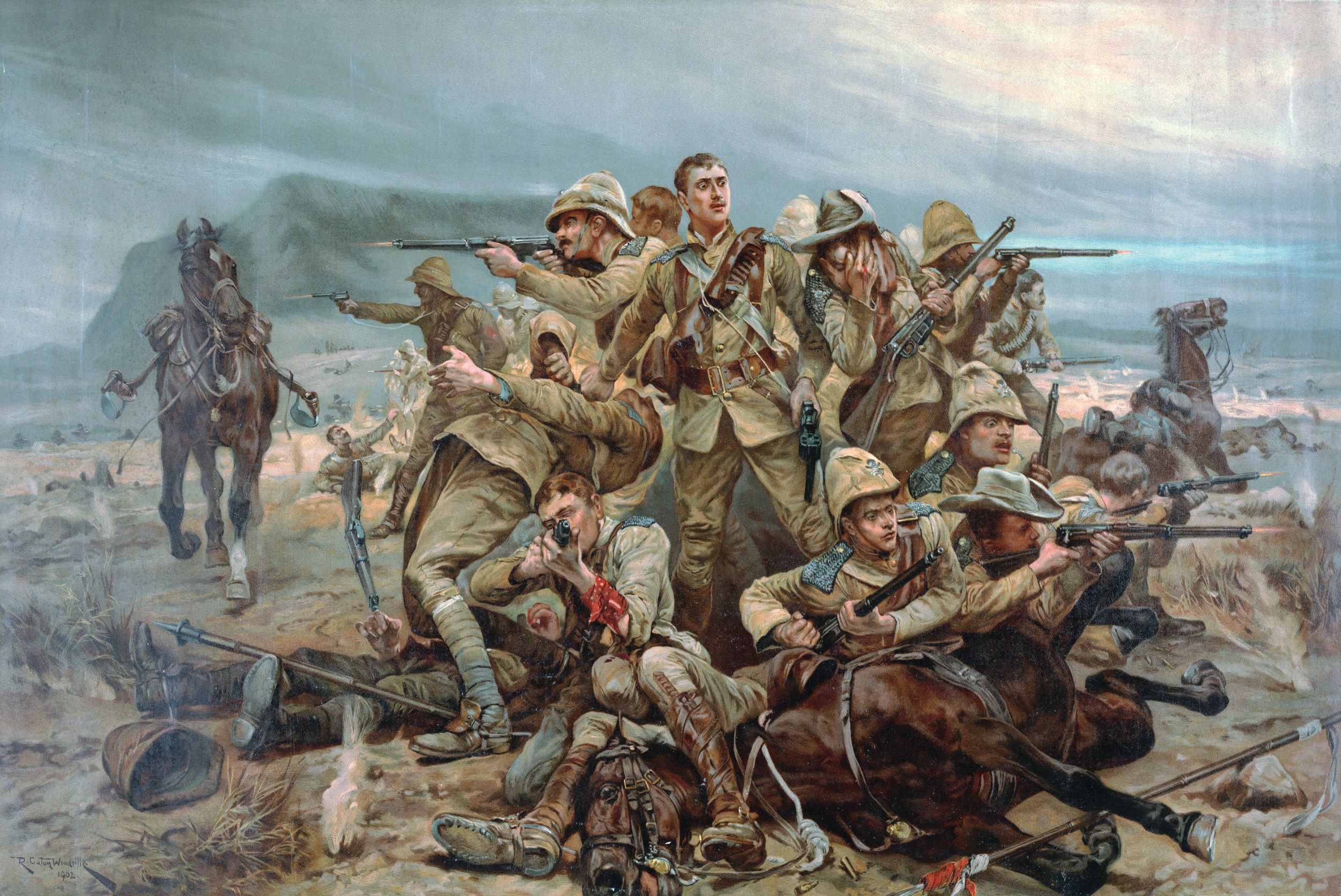
Roosevelt also got Uncle Joe not to disclose anything until after the 1944 election since FDR didn’t want criticism for the deal.
Oh, that couldn’t have happened, because I guess we learned in 2020 that making that non-disclosure agreement would have been an impeachable offense.
But then again, so would have been interring 100,000 American citizens without even so much as a legal charge against them because their forebears were from Japan.
Nah, neither of those things happened.